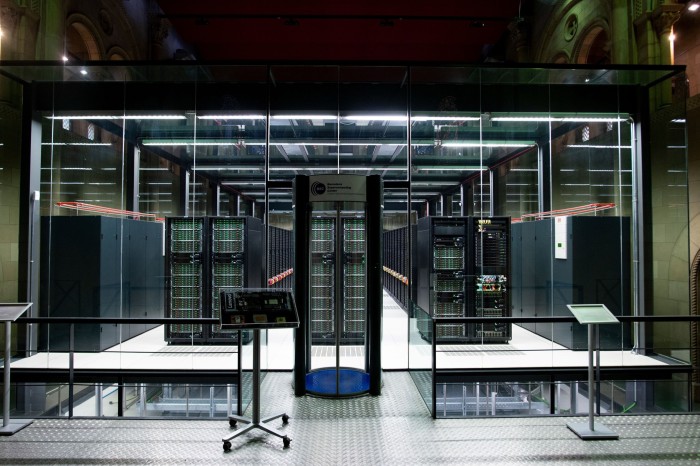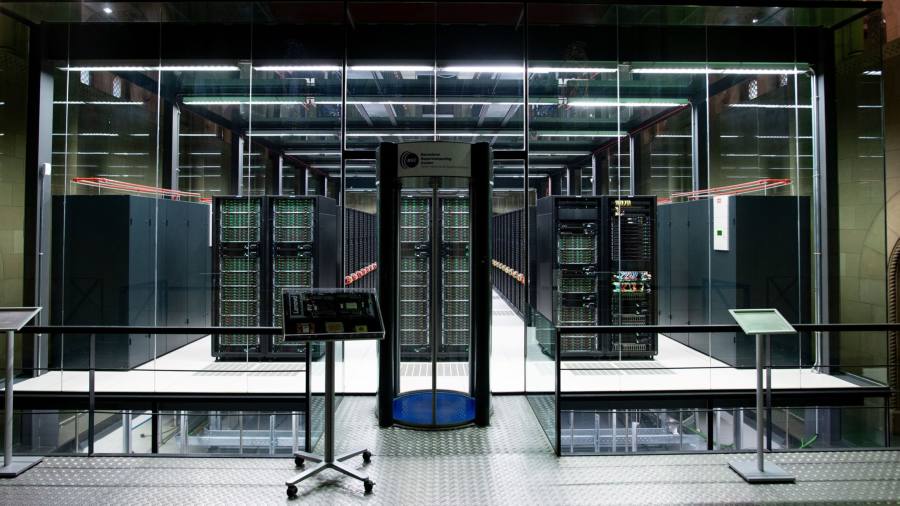
The idea that there could be “another me”, a doppelgänger or identical copy of oneself, has long had a powerful hold on the popular imagination. Now, science is beginning to breathe glimmers of reality into the concept, at least in digital form.
In Virtual You Peter Coveney, professor of chemistry and computer science at University College London, and Roger Highfield, science director at London’s Science Museum, show how far researchers have got in their quest for accurate digital simulations of humans in general — and of particular individuals.
The prospect is for personalised medicine far more accurate than the primitive version based on genetics that is available today. Your digital twin will predict accurately your risk of disease and recommend drug, diet and lifestyle changes to extend your healthy lifespan. There may also be troubling questions if the technology permits really reliable “healthcasts”; do you want a precise forecast of how and when you will die?
With appropriate symbolism the story begins in a deconsecrated church in Barcelona, the Chapel Torre Girona, still adorned with a cross above its entrance. It houses the MareNostrum supercomputer used by Coveney and colleagues from across the world to model electrical, chemical and mechanical processes within the human body. The authors see computer hardware and software supplanting churches and cathedrals as a source of wonder and inspiration for the information age.
The aim is eventually “to capture life’s rhythms, patterns and disorders in a computer, not just of any life or an average life but of one particular body and one particular life — yours”. This contrasts with today’s approach, which is essentially to look back at what happened in the past to similar but non-identical patients in similar but non-identical circumstances.
Creating a virtual human requires the collection and analysis of enough personal data to provide a realistic representation. This could come from any number of scans of your body and its organs, as well as genomic and biochemical analysis.
Even the most powerful computers conceivable in the distant future will not have sufficient capacity to analyse you in full molecular detail. And, if they could, the famous “chaos” principle — a fundamental randomness underlying everything — would make totally accurate prediction impossible. But Coveney and Highfield make the case convincingly that incomplete digital representations will be an extremely useful tool for advancing medical science and individuals’ health.
Before putting together a total digital human, research labs are undertaking the more limited but still formidably complex tasks of creating virtual models of living cells, specific organs such as the heart and diseases such as cancer.
The heart has long had a starring role in the digital human campaign. Cardiac computer simulations first emerged more than 30 years ago. They are now accurate enough to show the best position for a pacemaker to provide the optimum electric stimulus without harming the ventricle in which it is inserted.
Other projects are extending blood flow from the heart to the arteries, veins and capillaries that make up the whole cardiovascular system. The most striking example is Yoon-sun, a 26-year-old Korean woman whose entire circulation — a 95,000km-long network of vessels — has been mapped in silico through an international collaboration using several supercomputers. Researchers are beginning to draw conclusions about clinically significant differences in blood pressure and the movement of clots around the body from Yoon-sun’s blood flow.
The human brain, with as much data processing power as the most advanced silicon supercomputer, is by far the most difficult organ to model. But simple digital brain models already have clinical applications — for instance, to plan surgery in patients with intractable epilepsy by simulating the spread of abnormal electrical activity during seizures.
My only disappointment reading Virtual You was the way the authors confine themselves to the digital world, ignoring the relevant parallel research on reproducing aspects of human beings through biology rather than electronics. The use of stem cells to create organoids — miniature versions of human organs including the brain — has been one of science’s most significant advances of the past decade and will also have a huge impact on personalised medicine.
The digital and biological spheres already intersect in the expanding field of bioelectronics, which Coveney and Highfield hardly mention. Hybrid devices such as biochips incorporate human cells and silicon devices; electronic implants and brain computer interfaces connect the human body with external processing power. In future we may even be linked to our digital twins.
Within its digital limitations, however, Virtual You is the most comprehensive and comprehensible account so far of the way in which the revolution in computing and data is starting to transform human biology and medicine.
Looking ahead, the authors stick to plausible extrapolations of current research. They avoid the sort of posthuman fantasy in which others have indulged, such as creating a digital version of yourself that could live on in some sort of ultracomputer after you die. Their vision — giving people real choices about their health based on data and understanding, rather than educated guesswork — is exciting enough.
Virtual You: How Building Your Digital Twin Will Revolutionize Medicine and Change Your Life by Peter Coveney and Roger Highfield Princeton University Press £25, 336 pages
Clive Cookson is the FT’s science editor
FT Weekend Oxford Literary Festival
Peter Coveney and Roger Highfield will be appearing at the FT Weekend Oxford Literary Festival on Friday March 31 at 12pm
Join our online book group on Facebook at FT Books Café
Stay connected with us on social media platform for instant update click here to join our Twitter, & Facebook
We are now on Telegram. Click here to join our channel (@TechiUpdate) and stay updated with the latest Technology headlines.
For all the latest Health & Fitness News Click Here

